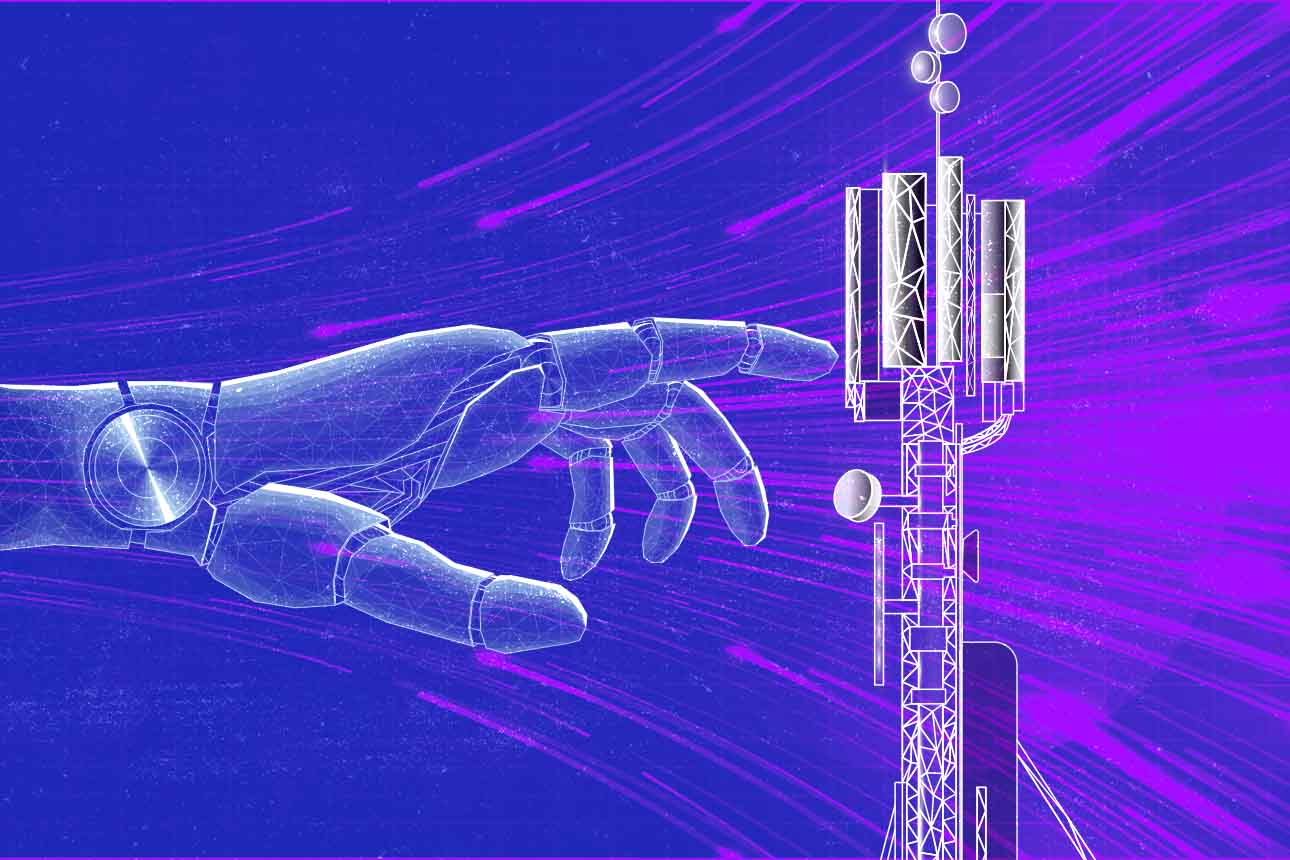AI, Security and Satellites Take Center Stage at India Mobile Congress
The India Mobile Congress opened in New Delhi this week with AI, security and satellites in focus as carriers rolled out safety phones, fraud defenses, sat-to-phone links and 5G public services.
News
- How AI Chatbots Pose Risks When used for Medical Advice
- Anthropic Safeguards Lead Sharma Steps Down Over Values and Risk
- Meta, Google Face Landmark Trial Over Addictive Social Media Design
- Hackers Breach Government Systems Worldwide
- Cyber Risk Rises to the Top of India Inc Worry List
- India, Malaysia Bet on Semiconductors to Deepen Ties

[Image source: Krishna Prasad/MITSMR India]
The India Mobile Congress opened in New Delhi on Wednesday, 8 October, with carriers and vendors pitching AI, satellite links and 5G use cases aimed at mass adoption.
Prime Minister Narendra Modi called it the “best time to invest, innovate and make in India,” framing an indigenous 4G stack as export-ready and part of a broader push from dependence to leadership.
“The country which once struggled with 2G… today 5G has reached almost every district of the same country,” he said.
Reliance Jio
Reliance Jio used the show to push safety on ultra-low-cost devices, unveiling JioBharat phones with a “Safety-First” capability priced from ₹799.
“At Jio, we believe technology should serve a deeper purpose to connect, protect, and empower every Indian. The JioBharat Safety-First solution is more than just a phone feature — it’s a life-enabling innovation that offers families peace of mind, trust, and care in an easy and affordable way,” said Sunil Dutt, president, Reliance Jio.
Additionally, it launched a free course on artificial intelligence (AI) called the AI Classroom, which aims to make every user get ‘AI-ready.’ The AI Classroom is open for all users, including those of JioPC, with the course including prompt engineering, research work, creation of presentations, and a final week AI project.
Vodafone Idea
The British multinational telecom firm showcased enterprise and consumer security tools, from network-based authentication and SIM binding to an AI-driven cyber-defense layer, along with a satellite-connectivity demo with AST SpaceMobile.
“The 5G and AI use cases we are showcasing highlight how technology can create real impact, right from equipping India with skills at scale to protecting citizens from cyber frauds to empowering MSMEs and enterprises with cutting-edge solutions to digitize and transform,” said Abhijit Kishore, CEO, Vi.
Ericsson
Ericsson’s booth centered on welfare, health and transport. With the UN World Food Program it highlighted Grain ATMs dispensing rations via biometrics, and with IIT-Madras it showed StethoECG, a handheld stethoscope with embedded ECG for remote diagnostics, alongside a private-5G robotic “dog” for railcar inspection.
“We are enabling next-generation networks that are foundational to the country’s ‘Digital India’ initiative,” Nitin Bansal, managing director, Ericsson India told The Times of India.
It also demonstrated an immersive showcase of how 5G enables seamless connectivity for entertainment, productivity, and communication for tomorrow’s commuters.
Bharti Airtel
Trust and security emerged as headline themes from industry. “Connectivity today is like a fundamental right,” said Bharti Airtel’s Gopal Vittal, adding that “the real questions are about trust, security, and inclusion.”
He urged “collective efforts” and a smarter regulatory approach to fight scams and digital fraud.
Organizers and government officials said the four-day event, on until Saturday, 11 October, at Yashobhoomi in New Delhi, convenes hundreds of exhibitors, with tracks spanning 6G research, quantum communications and fraud risk indicators.
The government’s readout flagged the 4G stack’s “export readiness” and new white papers under the Bharat 6G Alliance.





